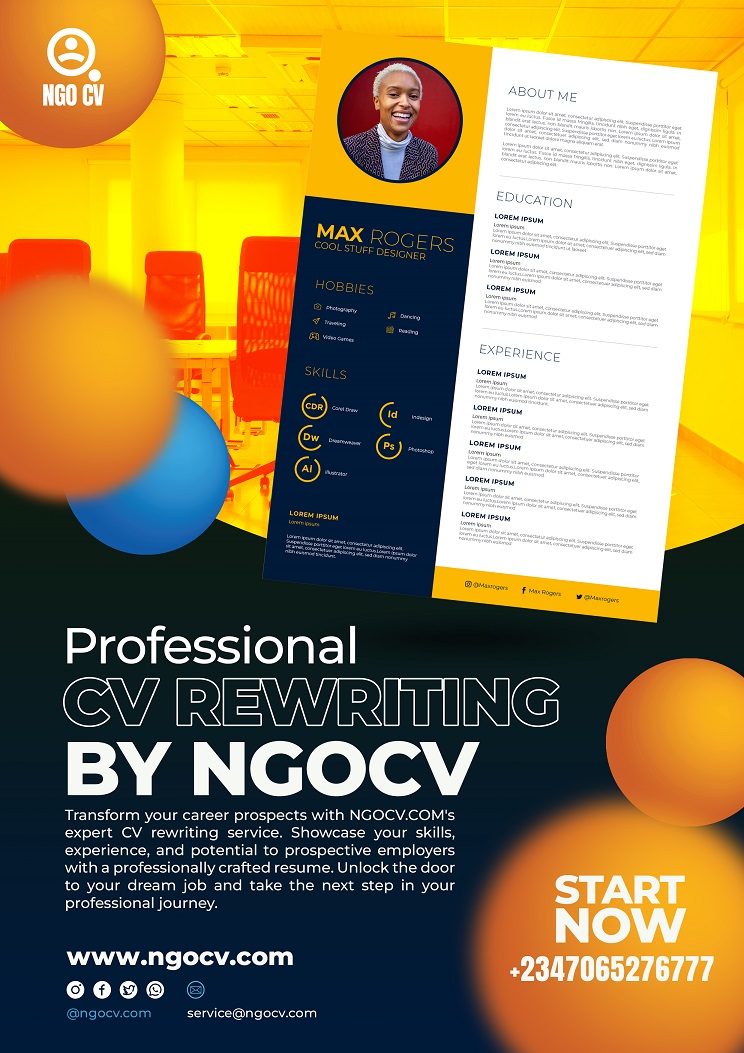CONSULTANCY TO CONDUCT BASELINE SURVEY
Christoffel Blinden Mission (CBM)
Christoffel Blinden Mission (CBM) International is an International Christian Development Organization, committed to improving the quality of life of persons with disabilities in the poorest countries of the world. CBM provides grants sourced from private and institutional donors to local partners, who subsequently implement the grants on the basis of contracts signed with CBM detailing implementation, accounting, and reporting standards. In this set-up, CBM Country Offices (CO) perform control and monitoring procedures aimed at partner projects; control reports from implementing partners to CBM, including comparison with original source documents, project contract and cost plans; and ensure compliance with organizational and statutory requirements.
Terms of Reference for Evaluation
1. Evaluation Summary
Program/Project,
Project Number
Disability Inclusion Disaster Risk Reduction (DiDRR)/ 4136-MYP
Partner Organisation
Elim Christian Vocational Training Centre (CVTC), Igede, Oju LGA
Project start and end dates; phase of project if applicable
April 2021 – March 2023
Evaluation Purpose
To identify the predisposing risk factors to disasters and the frequency of their occurrence towards developing mitigation measures and to assess the readiness of target communities to adopt mitigation strategies that will inform planning and implementation.
Evaluation Type
Baseline assessment
Commissioning organisation/contact person
CBM Country Office / Bright Ekweremadu
Evaluation Team members (if known)
To be determined
Primary Methodology
Mixed Methods, including quantitative and qualitative methods using participatory approaches**
Proposed Evaluation Start and End Dates
20th September to 20th October,2021
Anticipated Evaluation Report Release Date
October 14th, 2021
Recipient of Final Evaluation Report
CBM Country Office
2. Background of Project
Natural and man-made disasters occur everywhere around the world including Nigeria, leading to wanton destruction of lives and property, and increasing poverty and disability in affected communities. Although, a formal baseline assessment of the impact of disasters in Oju, Obi, Konshisha Local Government Area in Benue State (being the proposed project locations) has not yet been conducted by CBM or Elim Christian Vocational Training Centre, Igede (the implementing partner organization), the Benue State Contingency Plan (2019-2020) highlights that flood, conflicts, terrorism, drought and epidemics have a highest probability of occurrence and severity in Benue State. Recently (in 2020), communal clashes over perennial land dispute between Ukpete and Bonga (two border communities in Oju and Konshisha Local Government Areas, respectively of Benue State) was reported to have claimed lives and property leaving many displaced and living in fear. These crises have persisted over the years in spite of the peace and reconciliation processes that were initiated among the warring communities.
Similarly, epidemics have been reported in and around Oju and Obi Local Government Areas in recent times due to the under-resourced health system. The most recent was a report of a “strange disease” that broke out in Oye-Obi (a border village with Ekpong Ainu, Okpoma Ainu and Ogege Idelle all of Oju Local Government Area) in Orihi Council Ward of Obi Local Government Area. The epidemic was reported to have overwhelmed the Benue State government that they sought the federal government’s intervention in order to contain its spread to neighbouring communities.
Essentially, the root causes of conflicts in the proposed project communities are due to land and border disputes. Communities that experienced these conflicts were reported to have lost economic trees, food barns, farmlands, houses and household property (motorcycles, sewing machines, etc.) in addition to lives that were lost or maimed. Clearly, the cause of floods in the proposed project locations as reported is mainly climate change, and the resultant effect was devastating.
Oftentimes, poor and marginalized groups, including persons with disabilities are worst hit in times of these disasters. As with most disasters, it is also a known fact that disasters (natural or man-made) in the target locations adversely affects persons with disabilities and creates more disabilities therefore increasing the cycle of poverty. The situation in Benue State is compounded by the fact that the state does not have a database of persons with disabilities nor is there a response plan that is inclusive of persons with disabilities.
As a result, CBM and Elim Christian Vocational Training Centre (CVTC) jointly designed a project titled, Disability Inclusive Disaster Risk Reduction (DiDRR) in Benue State to address these issues within the communities. The DiDRR in Benue State is a two-year pilot project that is funded by CBM International and implemented by Elim CVTC Igede. The project intends to reduce vulnerabilities of persons with disabilities, remove the barriers that persons with disabilities in the target communities face, and mitigate impact of disasters when they occur. These will be achieved using a disability inclusive disaster risk reduction approach in building the resilience of the project communities to respond to natural and man-made disasters. The project goals are:
Overall objective – To contribute to strengthening CBM’s existing portfolio and to make the development programmes more resilient so that external shocks can be better absorbed.
Specific objective – To improve community resilience through Disability Inclusive Disaster Risk Reduction in six (6) council wards in three LGAs in Benue State.
3. Evaluation Objective, Scope and Intended Use
The key objectives of the baseline assessment include:
a. To identify the risk factors that influence the occurrence of disasters within the project locations.
b. To establish if operational mechanisms for rapid and effective disaster response, mitigation and recovery exist at the community level.
- To assess the level of disability inclusion in the current mechanisms being used to mitigate the occurrence of disaster at the community level.
- To identify capacity gaps within the emergency coordinating agency and the disability sector in the project locations to effectively engage duty bearers responsible for these mechanisms.
- To identify existing conflict resolution and peace-building systems within the project target locations and assess the extent of the effectiveness of those systems.
- To assess the willingness of communities to adopt conflict resolution and peace-building mechanisms in the project locations that may be designed through the project.
- To make recommendations on disability inclusive mitigation strategies and peace-building mechanism in the project communities.
CROSS CUTTING ISSUES TO CONSIDER
Disability Inclusion
- How was/were the project target group(s) identified?
- To what extent were persons with disabilities actively engaged in the project development and planning?
- How does the project plan to ensure persons with disabilities are identified and actively participate in the project implementation?
- How does the project intend to ensure data is disaggregated by disability status?
- Assess the existing attitude of respondents towards disability and disability inclusion.
Gender
The study shall consider gender aspects of the project and report on the likelihood of equal participation of women and men, of boys and girls (including men and women, boys and girls with disabilities) in the project. Data collected should be disaggregated according to sex, age, and disability.
Safeguarding
The study shall assess whether or not the partner organization have safeguarding mechanisms and how practical it is to implement them – this concerns children, children with disabilities and adults at risk/with disabilities. The report will show how and whether children/adults at risk in the target area will be protected from abuse and maltreatment, and are prevented from practices harmful to their health and development in the course of project implementation.
4. Intended Use of the Baseline Survey:
Findings from the baseline survey will be used for the following:
- Planning of project interventions.
- Stakeholder engagement.
- To determine the baseline targets for specific project indicators.
- To provide baseline data against which project progress and final evaluation will be measured.
- To serve as reference document for future purposes.
- Findings will be used for advocacy and research purposes.
5. Methodology
The survey process will take a participatory approach by involvement of programme stakeholders. CBM and partner (ELIM) staff will play a strong role in the baseline survey process.
The consultant will develop the survey methodology in the framework of the available survey budget in collaboration with CBM and ELIM’s representative. He/she is expected to submit a brief inception report where a survey methodology should be proposed. The survey must meet the principles of being inclusive, participative and interactive, involving both male and female beneficiaries. As a minimum, the baseline survey process should include the following key steps:
· It is highly anticipated that the consultant will take up both quantitative and qualitative methods for the baseline survey. The consultant/agency will be appreciated for using participatory tools and techniques for data collection, which may include but not be limited to in-depth interview, key informant interview, focus group discussion, survey questionnaires (KAP questions), etc.
· Comprehensive desk review of all relevant documents i.e. review related literature, books, records, reports and related government policy papers as deemed important. While we are suggesting these, we expect the consultant to develop the most appropriate methodology for the survey and submit to CBM and ELIM for approval.
· The consultant will interact with both CBM staff, ELIM and other potential stakeholders as required.
· The consultant will have to fully engage primary participants and stakeholders.
· Data collection tools and detailed methods as well as roles of the survey team members shall be consulted and agreed with ELIM and CBM. Data collection instruments and detailed methodology will be included in the inception report which will be reviewed and approved by CBM.
· Following data collection and analysis, the consultant will share preliminary findings with CBM. This shall be achieved through virtual debrief sessions CBM and ELIM. The sharing of preliminary findings is an opportunity for the stakeholders to hear what the survey has found and to be involved in thinking through recommendations. It should include constructive discussions around the key issues identified by the baseline survey.
Do-No-Harm, Safeguarding and Data Security:
Regarding safeguarding, confidentiality and data protection, the consultant must take all reasonable steps to ensure that the respondent is not adversely affected by taking part in the survey. He/she must ensure that informed consent is given according to CBM requirements for all interviews; must keep responses confidential at all times and must not do anything with interview responses that they are not informed about at the time. Also, particular care must be taken with children, young people and vulnerable adults. Permission must be granted from a parent or an officially designated caregiver for interviews with children aged under 18yrs and CBM’s child safeguarding policy should be applied in all circumstances. The safeguarding code of conduct should be signed prior to work commencing.
7. Limitations
Civil unrests, political instability (state-level bye-elections), insurgencies, banditry, kidnappings and armed herders’ attacks are currently being experienced around the country. These have potential of posing challenges to any form of human activity in the proposed survey locations. This may lead to extension of the consultancy and the survey timeline.
Also, COVID-19 pandemic and government restrictions can likely limit movement of people, and mass gathering (number of people gathering at a time).
- Required Expertise of the Consultant
The baseline survey will be conducted by an independent consultant who will work in close collaboration with CBM Nigeria Country Office and ELIM CVTC. The consultant must have multi-disciplinary expertise with a key background and expertise in M&E, experience in conducting baseline surveys, implementing public health, knowledge and experience in youth engagement, DIDRR (including peace building) programming and disability inclusive development.
Persons with disability must be involved in conducting the baseline survey to best assess the extent of inclusion of the proposed project components.
The consultant will be selected based on the following criteria:
ü Seven (7) to 10 years’ proven experience in programme design, implementation with five (5) of those years in conducting baseline survey/evaluations for programmes of similar size and topic
ü Advanced degree/MSc degree/ in public health or in International Development
ü Background in humanitarian action/ DIDRR programming as well as in inclusive development is desirable
ü Knowledge and practical experience in working with humanitarian and / or development programmes
ü Proven senior-level evaluation/research experience (at least 5 years) including knowledge of study methodology
ü Ability to draw practical conclusions and to prepare well‐written reports in a timely manner and availability during the proposed period
ü Ability to provide strategic recommendations to key stakeholders
ü Excellent interpersonal and communication skills including ability to facilitate and work in a multidisciplinary team
ü Analytical skills proven through submission of a past baseline survey report
ü Knowledge of disability inclusive practices in studies is an added advantage
ü References to include clients and other team members
MANAGEMENT RESPONSIBILITIES
9. commissioning responsibility
CBM is responsible for commissioning the baseline survey and provide guidance and institutional support to the external consultant.
CBM Nigeria Country Office will be responsible for planning and managing the survey and checking that quality standards are met, ensuring the survey conclusions and recommendations are communicated effectively.
The survey team will be identified and approved by CBM jointly with ELIM CVTC. CBM CO Nigeria is responsible for the contract and payments. A joint approval of the final report will be done by CBM and ELIM CVTC. The final instalment of consultant’s fees will be disbursed following sign off of the final report by CBM.
10. Logistics and coordination
COORDINATION AND LOGISTICS
CBM Nigeria Country office has responsibility for:
· Overall coordination of survey process.
· Recruitment of consultant.
· Work with ELIM CVTC to agree on inception report, data collection tools, consultants and survey process and schedule
· Gathering documents and data for evaluator in collaboration with ELIM CVTC.
· Organising post-survey debriefing with the consultant, including ELIM in the process.
· Organising communication of results of the survey.
· Support ELIM in developing a management response/action plan based on baseline survey recommendations.
ELIM CVTC have responsibility for:
· Work with the Country Office to organise meeting schedule for survey team.
· Identifying “neutral” and accessible locations for interviews/ meetings to take place (where people will feel free to speak as openly as possible)
· Organising for interviews with respondents according to the consultant’s requests/methodology
· Organising for interviews with the stakeholders according to the consultant’s requests/methodology
· Provision of guidance on security and safety at the survey sites**
Consultant have responsibility for:
· Professional and ethical conduct of the entire survey following the do-no-harm principles and adhering to CBM safeguarding policies
· Ensuring participatory and inclusive methodology
· Delivery of the following products (according to agreed schedule):
(i) An Inception reports
(ii) Detailed work plan and baseline survey tools
(iii) A final baseline report using CBM survey report template
(iv) Data sets for all collected data (quantitative and qualitative)
(v) All data collection tools that have been used together with a summarized analysis of the data
(vi) Submission of consent forms where applicable.
(vii) Separate list of persons interviewed, or group discussions conducted, ensuring that personal data is processed in a safe manner
(viii) Actual survey schedule/agenda indicating actual working time covered
(ix) A PowerPoint presentation or similar, summarizing the key finding from the baseline survey for presentation in a final workshop with ELIM and CBM
(x) Depending on defined needs for target schools/ communities, an accessible and easy to understand presentation of the findings and recommendations for the stakeholders
INCEPTION REPORT
An inception report is expected from the consultant after the literature review and submitted before the inception briefing to inform discussions. The purpose of this report is to ensure that the consultant covers the most crucial elements of the exercise including the appropriateness and robust methodology to be employed. The inception report provides CBM, ELIM and the survey team with an opportunity to verify that they share the same understanding about the baseline survey and clarify any misunderstanding at the outset. The report should reflect the survey team’s review of literature and the gaps that the field work will fill. It will also provide a detailed schedule for the survey exercise on location.
The inception report shall follow the suggestions of the CBM Inception Report Template and can be amended as needed.
BASELINE SURVEY REPORT
A draft survey report must be submitted to CBM Country Office at the agreed date. The draft survey report will be circulated by CBM Country office to key stakeholders (ELIM) for review and feedback. Feedback shall be provided within 2 weeks of receipt of the draft survey report.
The survey should be prepared using the CBM survey template in Appendix 1. It shall comply as much as possible with accessibility criteria – CBM will provide guidance on that.
The final report of the baseline survey must be submitted to CBM after review and incorporation of the various comments made at the agreed date. The main aim of the report is not only to feedback on this program, but to improve on the quality of ELIM’s and CBM’s work.
The baseline survey report is an exclusive property of CBM and should not be released without prior authorization to any other party. The final report will be available through CBM as well as being specifically circulated (by CBM) to the stakeholders including ELIM CVTC who will be able to use the baseline survey report freely.
DATA SETS
After final approval and payment of the baseline survey report, the consultant has to ensure that no personal data from the interviews etc. is available to a third party. This might include the handing over of such data to the CBM CO for storage. Electronic data have to be deleted entirely from the computers of all consultants or their associates involved in this survey.
11. Duration and Phasing
11.1 Proposed Time Frame
The proposed time-frame for this baseline survey is twenty-two (22) working days.**
11.2 Duration of Activities
The duration of the baseline survey exercise shall be twenty-two (22) working days from a mutually agreed date. The survey will follow the key phases:
Phase I – Desk study: Review of documentation, elaboration of inception report, and development of baseline survey tools [2 +1 days]
The consultant will review relevant documentation. Based on this review, he/she will produce an inception report which will include a survey plan, methodology and sampling strategy of the data collection for study. An inception briefing with CBM Nigeria CO and ELIM will be held.
Phase II: Field Data Collection (12 days)
This phase of the baseline survey will seek to collect primary data from respondents. The survey team will use the agreed plan, methodology and sampling strategy to conduct the field work.
Phase III – Data analysis and production of baseline survey report [3 days]
The survey team will draw out key issues in relation to the study objectives and produce a comprehensive report.
12. COSTS AND PAYMENTS
12.2 SCHEDULE OF PAYMENT
· Signing Contract: First advance of 10%
· Submission and approval of inception report and data collection instruments: Second advance of 30%
· Approval of all deliverables as stated above to CBM: Final payment following receipt of invoice from consultant 60%.
12.3 MODE OF PAYMENT
Bank transfers
How to apply
How to apply
Qualified consultant should submit via hardcopies only:
· A cover letter indicating interest
· Curriculum Vitae of the expert/s
· A short summary of your understanding of the TOR
· A technical offer, which must include detailed suggestions on the baseline survey approach/methods, the plan and the timeframe
· A financial offer, including daily professional fees for each consultant, any other costs related to the baseline survey, including travel cost, insurance etc. The consultant will be responsible for his/her travel cost, insurance etc
· A statement of availability of all team members during the suggested time frame – CBM may terminate the contract in case the suggested expert is unavailable after signature of the contract and if no adequate consultant with the same expertise can be nominated and agreed with CBM and the partners
The application should be sent via hardcopy only to the CBM International Country Office located at No.13 Okemesi Crescent, off Twon Brass Street, Garki 2, Abuja- FCT, Nigeria, in a sealed envelope marked, “**Statement of Interest: Disability Inclusion Disaster Risk Reduction (DiDRR) Baseline Survey Consultant”** on the envelope.
The deadline for receiving the hardcopy application is 14th September, 2021 by 5:00pm.**
**
· The consultant adheres to CBM Code of Conduct and commits to CBM’s Child Safeguarding Policy.
· The consultant also commits to highest standards of data security.
· Related statements of the above have to be signed together with the contract.
· CBM is an equal opportunities employer, and particularly encourages qualified people living with disability to apply.
Selection criteria
Regarding the selection criteria, the technical and financial proposals will account 70% and 30% respectively. The main criterions of the technical proposal are: survey methodology (35%), team composition/key personnel (15%), professional experience (10%), experience relevant to this baseline survey (10%).
If you have any questions about the terms of reference, please send your queries to [email protected]




